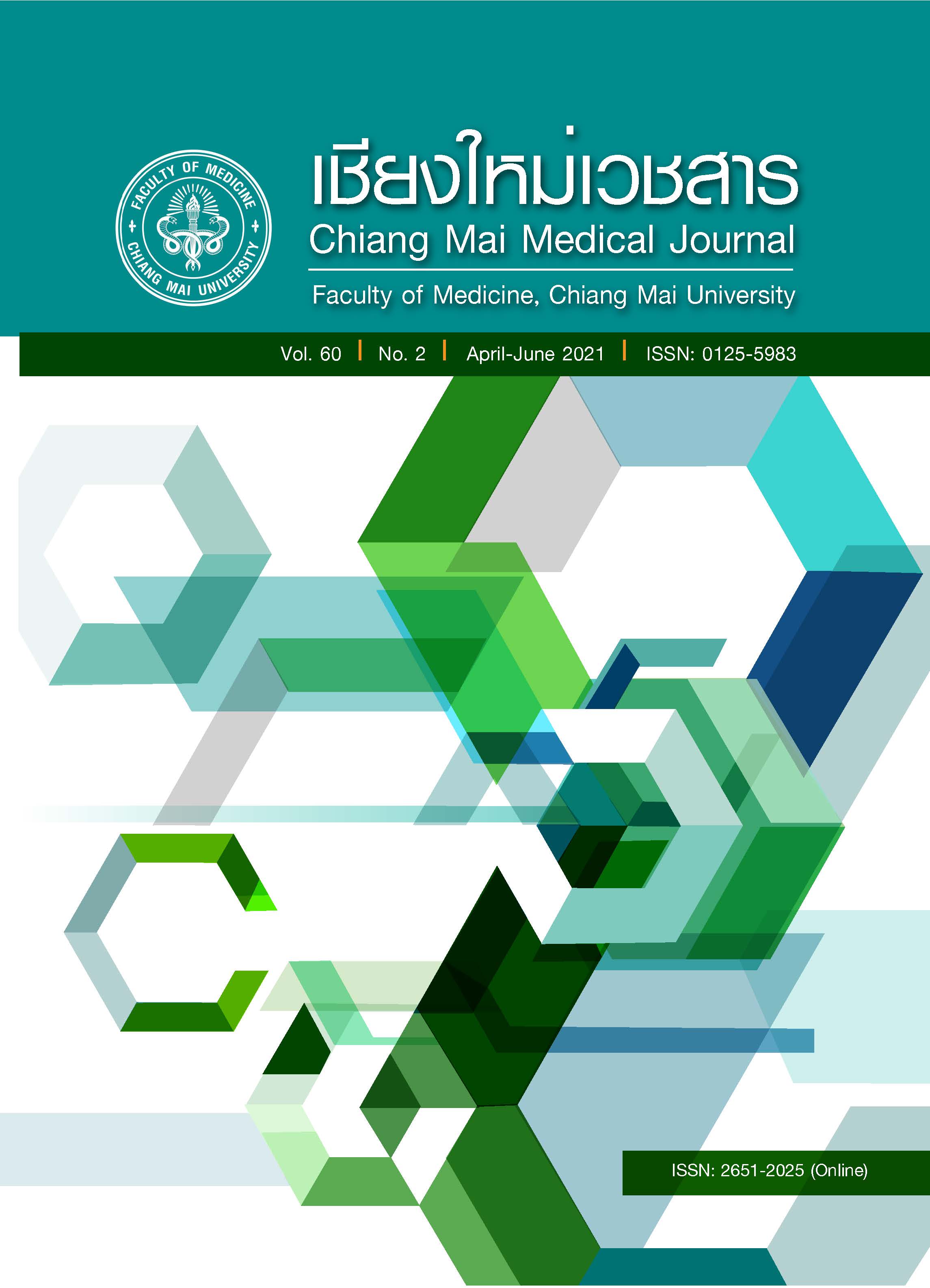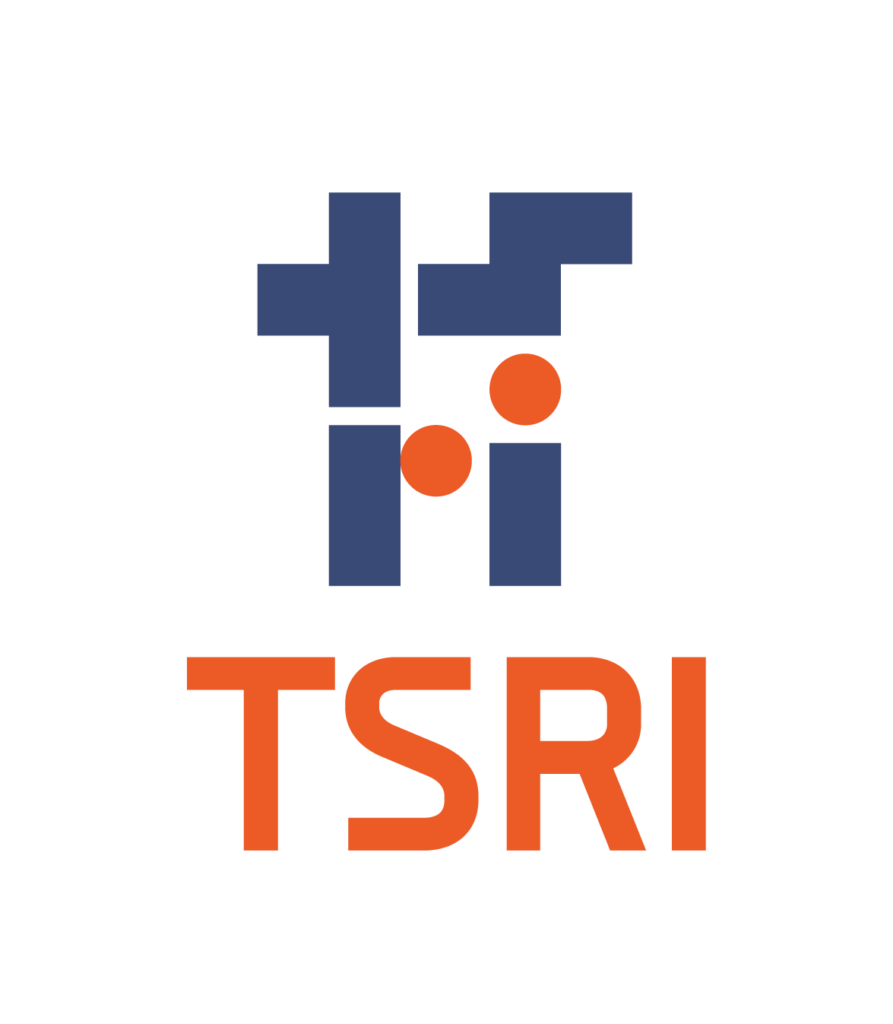Self-leadership and job performance of nurses in regional hospitals in Thailand
ภาวะผู้นําในตนเองและการปฏิบัติงานของพยาบาล
Keywords:
self-leadership, ่job performance, nurseAbstract
Objectives Self-leadership is an important factor for nurses which influences the quality of nursing care and job performance. This descriptive-correlational study was conducted to explore self-leadership and job performance as well as the relationship between self-leadership and job performance of nurses working in regional hospitals.
Methods The participants were 438 nurses working in regional hospitals located in the northern region of Thailand who had been selected using a multi-stage sampling method. Research instruments included a demographic data questionnaire, the Revised Self-Leadership Questionnaire (RSLQ) and the Nursing Performance Scale which were translated into the Thai language by the researcher. Cronbach’s alpha coefficient reliabilities of RSLQ, task performance and contextual performance were 0.93, 0.91 and 0.92, respectively. The data were analyzed using descriptive statistics and Spearman’s rank correlation coefficient.
Results The study found that self-leadership of the nurses in regional hospitals was at the moderate level (X = 3.60, SD = 0.52). Self-leadership dimensions of behavior-focused strategies (X = 3.58, SD = 0.52) and constructive thought pattern strategies (X = 3.53, SD = 0.60) were also at moderate levels, while natural reward strategies (X = 3.71, SD = 0.60) was at a high level. Task performance of the nurses (X = 56.82, SD = 9.76) was at a high level, while contextual performance of the nurses (X = 63.29, SD = 10.76) was at a moderate level. Self-leadership of nurses was statistically significantly positively related to task performance and contextual performance at 0.05 (r = 0.40, 0.50 respectively, p < 0.05).
Conclusions Self-leadership of nurses was statistically significantly positively related to job performance. Nursing administrators can use data obtained from the research as a basis for planning to enhance the self-leadership of nurses, which can improve the quality of performance and result in positive outcomes for enhance nursing service.
References
Strategy and planning division. Thailand Health Profile 2011-2015. 2016 [cited 2020 Mar 12]. Available from: http://bps.moph.go.th/new_bps/node/57
Juntima R, Rukchanok K. A study of the rela-tionship between selected personal factors, professional practice environment, and job retention of registered nurses in Thailand. JR-TAN. 2018;19:195-203.
Greenslade H, Jimmieson L. The organisation-al factors impacting on patient satisfaction: An examination of service climate, effort, and performance [Doctoral thesis]. [Australia]. University of Queensland; 2008.
Awases H, Bezuidenhout C, Roos H. Factors affecting the performance of professional nurses in Namibia Curationis. PMID. 2013;36: 108-115.
The healthcare accreditation institute (pub-lic organization). Hospital and Health Service Standards. 2018. [cited 2020 Mar 12]. Availa-ble from: https://www.ha.or.th/TH/FileDown-load/
Nursing Division Ministry of Public Health. Nursing Service Strategy National level 2016 – 2021. 2019. [cited 2019 Mar 12]. Available from: http://www.nursing.go.th/?page_id=181
Mwachofi A, WalstonL, Al-OmarA. Factors af-fecting nurses’ perceptions of patient safety. Int J Health Care Qual Assur. 2011;24:274-83.
Sanrunya K, Sutteeporn M. The relationships between personal factors, self-leadership, and Job performance of Professional nurses at Selaphum hospital, Roi Et province [Mas-ter’s Thesis]. [Udon Thani]: Sukhothai tham-mathirat open university; 2013.
Apinun K, Sutteporn M, Wallapa B. The re-lationships between personal factors self - leadership, job satisfactionand job perfor-mance of charge nurses in Phramongkutkloa Hospital. JRTAN. 2016;17:145-53.
Prussia E, Anderson S, Manz C. Self-leader-ship and performance outcomes: the mediat-ing influence of self-efficacy. J Organ Behav. 1998;19:523-38.
Houghton D, Neck P. The revised self-leader-ship questionnaire: Testing a hierarchical fac-tor structure for self-leadership. JMP. 2002; 17:672-91.
Bryant A, Kazan L. Self-leadership: how to be-come a more successful efficient and effec-tive leader from the inside out. McGraw Hill: Professional. 2012.
Tassana B. Direction of nursing management system reform in accordance with the desir-able Thai health service system in the future: proposals for health service. 3rd ed. Non-thaburi: Health Administration Division; 1999.
Schwirian M. Evaluation the performance of nurse: A multidimensional approach. Nursing Research. 1987;27:347-51.
Benchawan k. Head nurses’ motivating lan-guage and registered nurses’ job perfor-mance, government university hospitals [Master’s Thesis]. [Chiang Mai]: Chiang Mai University; 2016.
Houghton D, Neck P. Two decades of self-leadership theory and research: past devel-opments, present trends, and future possi-bilities, JMP. 2006;21:270-95.
Ratsiri T. Research in Nursing Science, con-cepts towards application. 3rd ed. Bangkok: Chulalongkorn University; 2018.
Greenslade H, Jimmieson L. Organizational factors impacting on patient satisfaction: A cross sectional examination of service cli-mate and linkages to nurses’ effort and per-formance. Int J Nurs. 2011;8:1188-98.
Fathimath M. Quality of work life and job per-formance among nurses in the tertiary care hospital, Maldives [Master’s Thesis]. [Chiang Mai]. Chiang mai university; 2012.
Yu S, Ko Y. Communication competency as a mediator in the self-leadership to job perfor-mance relationship. Collegian. 2017;24:421-5.
Manz C, Neck P. Mastering self-leadership:
empowering yourself for personal excel-lence. 3rd ed. New Jersey: Pearson Prentice Hall, Upper Saddle River. 2004.
Neck CP, Manz CC, Houghton JD. Self-Leader-ship The De finitive Guide to Personal Excel-lence. Califor nia, US: SAGE Publications. 2017.
Neck CP, Manz CC, Houghton JD. Self-Leader-ship The De finitive Guide to Personal Excel-lence. Califor nia, US: SAGE Publications. 2017.
Carmeli A, Meitar R, Weisberg J. Self-leader-ship skills and innovative behavior at work. Int J Manpow. 2006;27:75-90.
Andressen P, Konradt U, Neck P. The rela-tion between self-leadership and transforma-tional leadership: competing models and the moderation role of vitality. J Leadersh Organ Stud. 2012;19:68-82.
Downloads
Published
How to Cite
Issue
Section
License
Copyright (c) 2021 Chiang Mai Medical Journal

This work is licensed under a Creative Commons Attribution-NonCommercial-NoDerivatives 4.0 International License.










